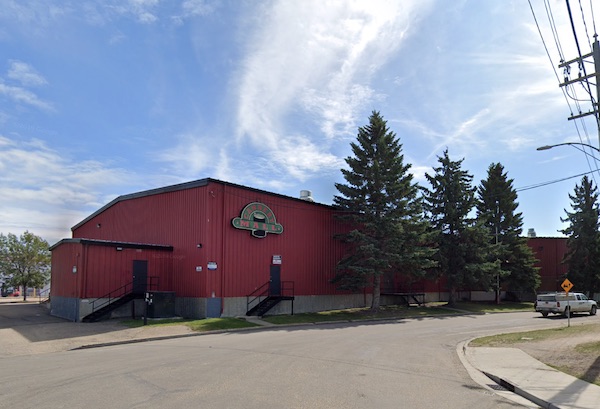City of Red Deer
City forms “emergency shelter working group” to find shelter for dozens of homeless this winter

City administration and community organizations focus work on October 1 and beyond
With the closure, there will be reduced capacity levels. Since the emergency temporary shelter was established in March 2020, in response to COVID-19, City administration has been tracking overnight shelter usage at Cannery Row. The site has seen between 29 to 81 people seeking overnight shelter and services at Cannery Row, with an average overnight usage by 49 individuals. With the shift back to the original shelter site, there will be a capacity of 26 spaces for overnight shelter, potentially having up to 55 of Red Deer’s most vulnerable citizens turned away heading into the winter.
During the brainstorming session, the group determined a list of potential issues that could arise from the gap in service provision starting October 1. The following are some which that were deemed a high priority:
- Increased pressure on the capacity of Mustard Seed, other shelters, emergency services, compliance and support services
- Lack of safe spaces for people experiencing homelessness, leading to increased loitering and rough sleeping
- Losing significant shelter capacity for people in need, and a lack of daytime supports
- Increase of urban encampments without direct access to support services.
- Increased health risks resulting in negative impacts to underserved clients and the healthcare system
- Increase in litter and debris
“Overwhelmingly, the consensus in the room of more than 30 representatives from social focused agencies agree that Cannery Row, or a comparable site, should be operational until a permanent solution is found,” said Kristin Walsh, Safe & Healthy Communities Manager. “Aside from this, there is not a feasible solution that was determined that would fill the service gap and the anticipated challenges that will come starting October 1.”
Once the community impacts were acknowledged, potential mitigation strategies were brainstormed to address them. Task forces are being created with the participants involved for each mitigation strategy.
“Administration will continue to work with the community to serve vulnerable Red Deerians and keep people healthy and safe, while mitigating the risks as they arise,” said Acting Interim City Manager Sarah Tittemore. “Yesterday was just the first step in planning for October 1 and beyond; we believe that in working with community organizations and Red Deerians, is the only way to help our most vulnerable through this uncertain time.”
An emergency shelter working group will be assessing the feasibility of the ideas brought forward and actioning these as rapidly as possible, engaging funders, service providers, and those with lived and living experience. There will be an opportunity for the broader community to contribute their ideas and to be involved in the near future.
City of Red Deer
City of Red Deer Employee Honoured with Bob Stollings Memorial Award for Outstanding Contributions

Annette Scheper, Community & Program Facilitator in the Safe & Healthy Communities Department is The City’s 2025 recipient of the Bob Stollings Memorial Award.
The Bob Stollings Memorial Award is given out each year to a City employee who displays outstanding performance in alignment with The City’s RISE cornerstone values – respect, integrity, service and excellence. Nominations for the award are submitted by fellow coworkers detailing the employee’s achievements professionally and interpersonally, along with letters of support. The award is considered a great honour among City staff.
With an impressive 22-year career, Annette has played a pivotal role in shaping Red Deer’s cultural and special events landscape. Her leadership and innovation have brought thousands of successful events to life, creating lasting traditions that enrich the lives of residents. Her commitment to excellence and resourcefulness has ensured that community initiatives are inclusive, accessible, and impactful.
One of Annette’s most notable achievements is the development of the Community Loan Program, which provides essential resources for local groups, contributing an annual value of $86,778.95 back into the community. In addition, she has successfully led and executed a variety of large-scale events, demonstrating remarkable problem-solving skills and a dedication to sustainability. From creating elaborate event designs with repurposed materials to managing complex logistics, she continuously sets the standard for excellence.
“Annette exemplifies the best of our organization,” said City Manager, Tara Lodewyk. “Her unwavering dedication, innovative thinking, and ability to bring people together has made a profound impact on our city. This award is a testament to her hard work and passion for creating meaningful experiences for our community.”
The Bob Stollings Memorial Award was first established in 1985 and is presented every year to honour Robert (Bob) E. Stollings, a loyal and dedicated City employee from 1960-1984.
City of Red Deer
Red Deer will choose a new Mayor as Ken Johnston decides to step away

It’s a telling detail about the person who leads Red Deer City Council. Always putting the city’s needs ahead of his own, Mayor Ken Johnston has announced his intentions within days of the opening of Nominations for October’s municipal elections,
After 12 years on council, Mayor Ken Johnston has decided against running for a second term as Mayor this fall. Johnson shared his decision in front of colleagues and supporters in a touching announcement on Wednesday.
At 71 years old, Johnston remains vibrant, passionate and healthy. He says that’s exactly why he and his wife Carolyn have decided now is the right time to start their next stage of life together.
Mayor Johnston listed a number of highlights and achievements he can look back on, including his help advocating for the redevelopment of Red Deer Regional Hospital, the growth of Red Deer Polytechnic, and positive moves in Economic Development.
All these lead of a feeling of ease about the decision to step away, though affordable housing and a permanent shelter for the homeless remain pressing concerns.
With about 8 months remaining in his term, Mayor Johnston is planning to push hard to move the needle on these housing issues.
“We’re looking forward to some more work and we’ll be going to the community shortly about it. So I still have optimism that maybe before the term is out we can have an announcement.”
This is the second major political announcement in Central Alberta in the last number of days. Earlier this week Red Deer Mountain View MP Earl Dreeshen announced he won’t be running in the next federal election.
-

 2025 Federal Election1 day ago
2025 Federal Election1 day agoThe Federal Brief That Should Sink Carney
-

 2025 Federal Election1 day ago
2025 Federal Election1 day agoHow Canada’s Mainstream Media Lost the Public Trust
-

 2025 Federal Election1 day ago
2025 Federal Election1 day agoOttawa Confirms China interfering with 2025 federal election: Beijing Seeks to Block Joe Tay’s Election
-

 2025 Federal Election1 day ago
2025 Federal Election1 day agoReal Homes vs. Modular Shoeboxes: The Housing Battle Between Poilievre and Carney
-

 Media10 hours ago
Media10 hours agoCBC retracts false claims about residential schools after accusing Rebel News of ‘misinformation’
-

 John Stossel1 day ago
John Stossel1 day agoClimate Change Myths Part 2: Wildfires, Drought, Rising Sea Level, and Coral Reefs
-

 COVID-191 day ago
COVID-191 day agoNearly Half of “COVID-19 Deaths” Were Not Due to COVID-19 – Scientific Reports Journal
-

 Bjorn Lomborg9 hours ago
Bjorn Lomborg9 hours agoNet zero’s cost-benefit ratio is CRAZY high

